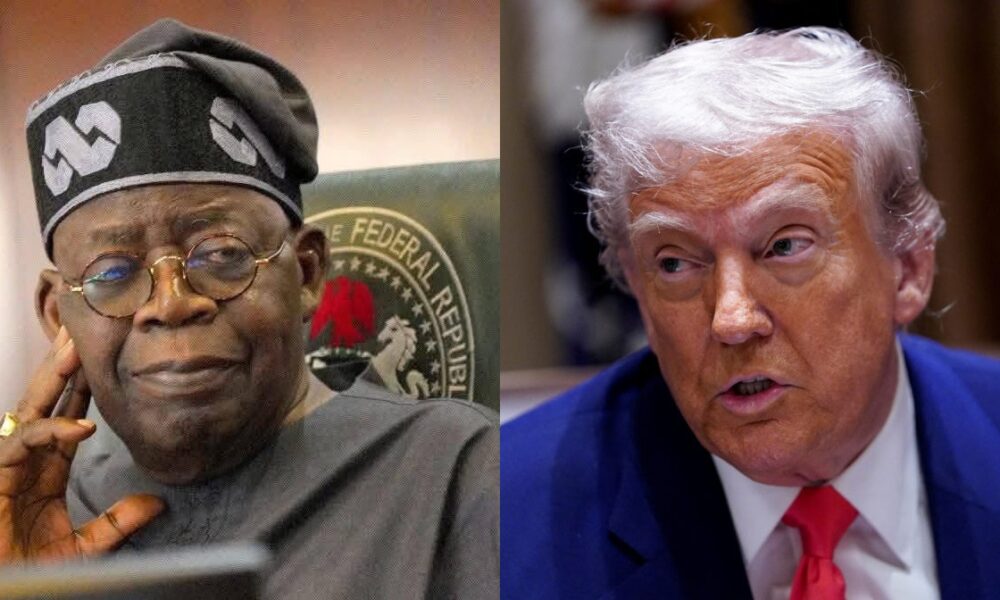
Garba Mohammed
The Federal Government on Wednesday intensified efforts to ease rising Nigeria–US tensions, holding a high-level diplomatic briefing in Abuja where it firmly rejected Washington’s claim that Nigeria engages in religious persecution.
Permanent Secretary of the Ministry of Foreign Affairs, Dunoma Ahmed, told representatives of the diplomatic corps that the allegations misrepresented Nigeria’s legal and social systems. He stressed that the country’s laws were religion-neutral and guaranteed equal protection for all citizens. He also clarified that the Shari’a codes in some northern states apply only to Muslims and function within the oversight of Nigeria’s secular judiciary.
“Christian and Muslim institutions continue to operate freely, promoting peaceful coexistence,” he said.
Read Also: China Backs Nigeria, Warns Against Foreign Interference Amid Trump Threat
Addressing journalists separately, the Minister of Information and National Orientation, Mohammed Idris, criticised the United States’ designation of Nigeria as a “Country of Particular Concern,” describing the move as a product of misinformation. He argued that terrorism, banditry, and other violent crimes were driven by criminal motives, not religious bias.
Idris cited security data showing that since President Bola Tinubu assumed office in May 2023, security forces had neutralised over 13,500 terrorists, arrested more than 17,000 suspects, and rescued over 9,850 abducted persons across the country.
He added that the President was actively engaging diplomatic channels to correct what the government views as a major misunderstanding in Nigeria–US relations.
In a development that further highlighted the depth of the Nigeria–US dispute, Minister of Aviation and Aerospace Development, Festus Keyamo, wrote to US President Donald Trump, challenging the narrative of targeted killings of Christians in Nigeria.
Keyamo, referencing his human rights background, maintained that Nigeria was being unfairly profiled. He noted that President Tinubu’s immediate family includes Christians and described claims of state-enabled persecution as exaggerated and misleading.
Former INEC National Commissioner, Prof. Lai Olurode, advised the government to tread carefully, warning that overreaction could escalate the Nigeria–US disagreement. He urged elites to close ranks and support a measured diplomatic response.
Similarly, former presidential aide, Senator Ita Enang, cautioned against uncoordinated commentary by officials, insisting that the Nigeria–US dispute carries significant foreign policy implications. He proposed that the Presidency, National Assembly, intelligence agencies, and Foreign Affairs Ministry should agree on a unified national response.
Meanwhile, the Chief of the Air Staff, Air Marshal Sunday Aneke, summoned all Air Component Commanders nationwide, directing them to intensify precision air strikes against terrorists and armed groups. In a statement by Air Commodore Ehimen Ejodame, Aneke emphasised the need for intelligence-driven operations and closer coordination with sister security agencies.
As Abuja works to manage the growing Nigeria–US tensions, officials say the country will continue engaging global partners while defending its sovereignty and ensuring that counterterrorism efforts remain rooted in professionalism and national interest.
